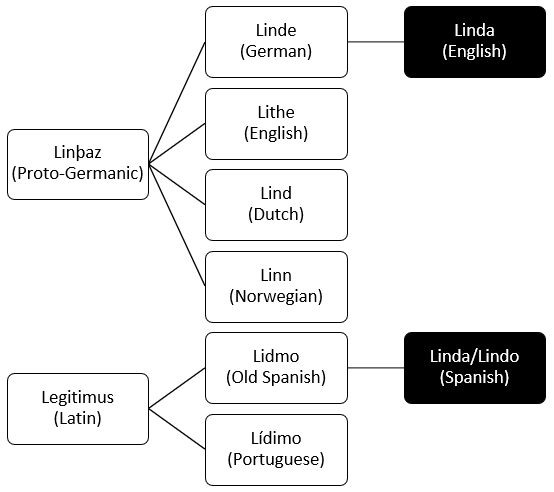
Linda, your name is really cool! It’s based on an ancient word meaning “weak, tender, soft.” It wasn’t used on its own until recently, where it was a Germanic nickname for names ending in -linde.
But, this isn’t the only source of your name! It’s also a Spanish word meaning “handsome/pretty” with a completely different history.
Thus, when translating this name, I’ll make two approaches: “weak/tender/soft” and “beautiful.”
Quenya
For “weak/tender/soft” I’d translate it as “Milya – soft/gentle/weak.” This adjective can be used on its own as a genderless name.
Feminine: Milye
Masculine: Milyo
For “beautiful” we have two words, from the same root: Vanya and Vanima. These adjectives can be used as gender neutral names.
Feminine: Vanye and Vanime.
Masculine: Vanyo and Vanimo.
These names are all perfect for your Elven characters, falling right in line with a typical descriptive name that would be used as an Amilesse or an Epesse.
Sindarin
In Sindarin, our pickings for words that mean “weak/tender/soft” are a bit thinner, so the closest that we can get is “Mae – soft, pliant.” This can be used on its own as a genderless name. The gendered suffixes are awkward to use here, so I’ll use the nouns for “man” and “women.”
Feminine: Maenis “soft woman.”
Masculine: Maenir “soft man.”
For “beautiful,” the word is Bain, which can be used on its own without gendered suffixes. This is the cognate of Vanya/Vanima.
Feminine: Beineth and Beinel.
Masculine: Beinor.
These names fit in perfectly in Middle-earth. Elves love names that tell whomever they meet a lot of information about who they are, so culturally, these names are great!
![]()
Linda, I hope that you found this article interesting and useful!
If you’d like your name translated in this series, comment below and I’ll consider it for a future article!
Source:
Hanks, Patrick & Hodges, Flavia. A Dictionary of First Names Oxford University Press. 1990. pgs 206, 215.
Wiktionary “Reconstruction:Proto-Germanic/linþaz” Last edited: April 30th, 2021.
